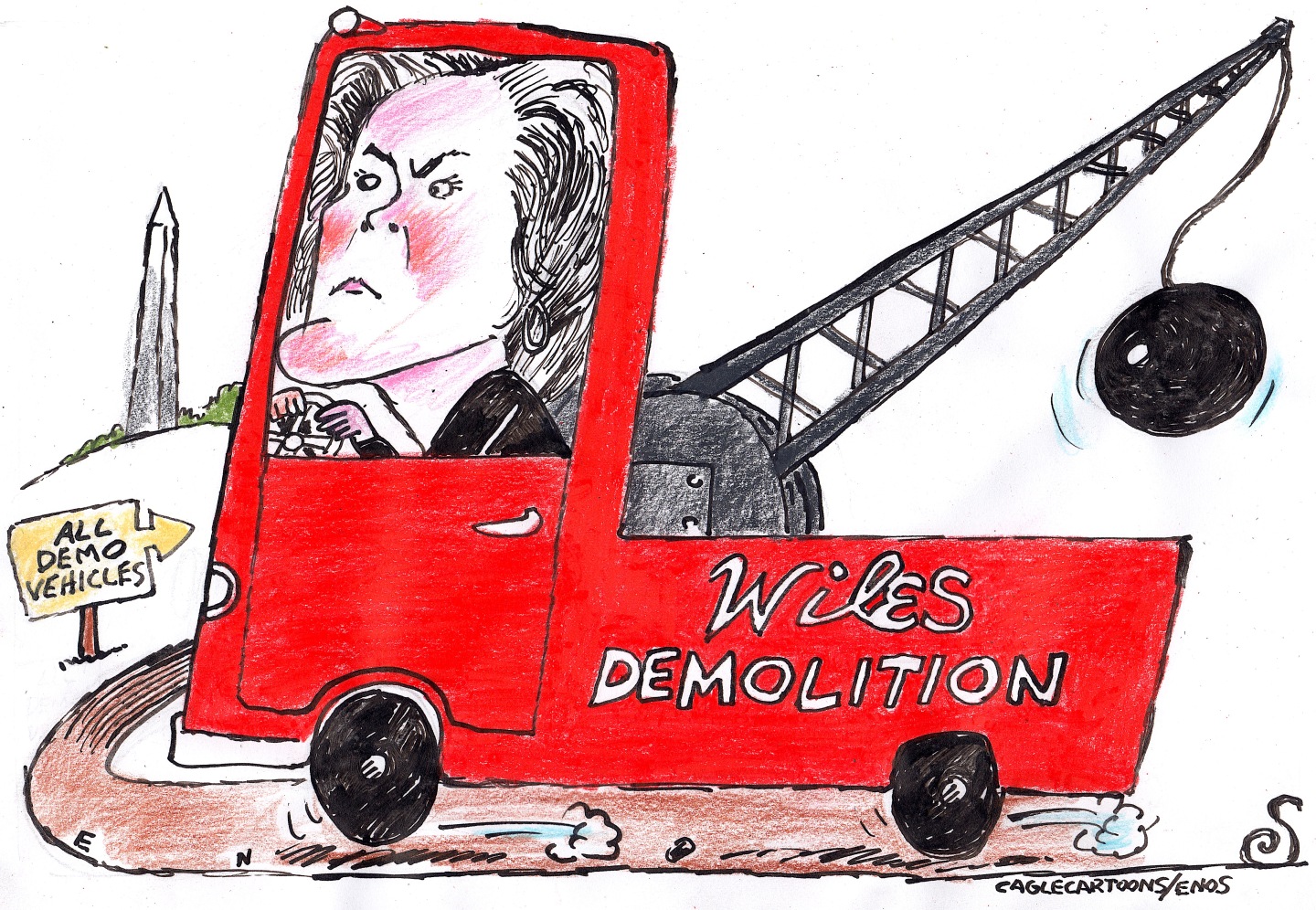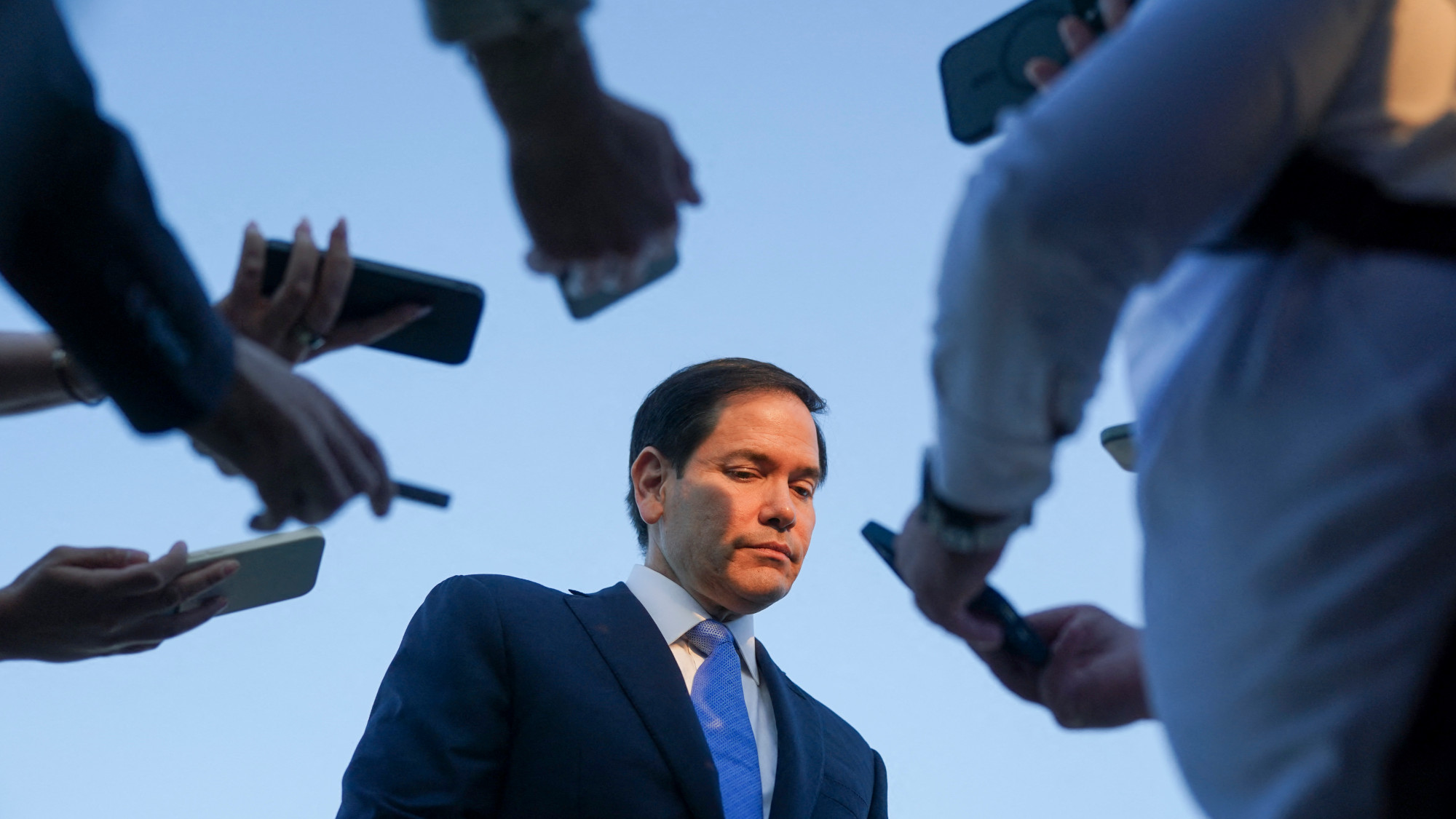Angela Rayner: the rise and fall of a Labour stalwart
Deputy prime minister resigned after she underpaid £40,000 in stamp duty

“In the end Angela Rayner had to go,” said Steven Swinford in The Times. Her tax affairs and her living arrangements were complicated, but the case turned on a point that was “remarkably simple”. She had, she admitted, underpaid £40,000 in stamp duty by wrongly claiming that her new £800,000 flat in Hove was her only home. And though she’d tried to blame her failure to pay the second-home surcharge on bad legal advice, that defence started to unravel when the conveyancing firm she had used told the press that they were being scapegoated, and that they had not given her any advice on her tax position – which was not straightforward.
‘Catnip’ to voters
Rayner, it transpired, had sold her 25% stake in her former marital home, in her Ashton-under-Lyne constituency, to a trust she and her ex-husband had set up for their severely disabled son, with the funds that he’d got from a settlement with the NHS in 2020. They’d wanted, she said, to safeguard their son’s future in the house, which had been adapted to cater for his needs. She seems to have thought that, as a result of this sale, she no longer had a legal interest in the property. But Sir Laurie Magnus, the Independent Adviser on Ministerial Standards, found that she had been twice advised to get expert advice to clarify this, but had not done so. As a result, he concluded that she had breached the ministerial code. Having defended her for days, Keir Starmer had little choice but to accept Rayner’s resignation as housing minister and deputy PM.
How her enemies on the right must be crowing, said Ros Wynne Jones in the Daily Mirror. Ever since Rayner arrived at Downing Street, wearing a spearmint trouser suit from Me+Em, they’d been gunning for her. Her suit, we were told, was “ghastly” – “too bright, too baggy and too expensive for a working-class woman”. Having attacked her in 2022 for going to Glyndebourne (“above her station”), they attacked her again when she went to a rave in Ibiza. Newspapers pored over her affairs, in the hopes of finding that she’d dodged taxes during the sale of her council house in Stockport (she was vindicated); and smeared her as “Three Pads” when it emerged that she had moved to Hove – though for normal intents and purposes, that flat was the only home she owned. The third “pad”, a flat in London, came with the job, and she has now lost it. It reeked of classism, but it was also tactical: as one of the few working-class people on the Labour benches, and charismatic and relatable to boot, Rayner was “catnip” to voters, and a huge asset to the Government. She had to be brought down.
The Week
Escape your echo chamber. Get the facts behind the news, plus analysis from multiple perspectives.

Sign up for The Week's Free Newsletters
From our morning news briefing to a weekly Good News Newsletter, get the best of The Week delivered directly to your inbox.
From our morning news briefing to a weekly Good News Newsletter, get the best of The Week delivered directly to your inbox.
A major blow to Starmer
Yes, her backstory resonated with many, said George Chesterton in The Daily Telegraph: she grew up on a council estate in Stockport, where she cared for her bipolar mother. She fell pregnant at 16, left school with no qualifications, having been told she’d “never amount to anything”, and trained as a care worker, before becoming a union rep. That she should have risen, from this background, to deputy PM is impressive; but what matters is not how ministers reach high office, it’s what they do when they get there. Rayner has long courted controversy (she had to apologise for referring to Tories as “scum”); she is not viewed as a “policy heavyweight” (her department has made little headway towards its target of 1.5 million new homes); she has seemed overfond of expensive freebies; and her vote share was reduced at the last election. Now we discover that she is also careless with her taxes.
Her middle-class supporters like to refer to her as a working-class hero, said Paul Burke in The Spectator, but her own “ilk” see her as a “chancer” – a woman who claims not to be interested in money while feathering her nest, who calls for higher taxes while not paying her own. She may feel as if she has been hounded by the press, but if it hadn’t been for journalists asking questions, she’d never have paid the tax, said John Rentoul in The Independent. She seems to have made a genuine mistake, and no doubt there are many right-wing politicians who deliberately avoid taxes – but Labour ministers always pay a heavier price for their financial transgressions because they are so “sanctimonious” about such matters. Rayner herself was brutal in her denunciations of Tory ministers who seemed to have not paid their taxes. Now, to many, she looks no better than her Conservative predecessors.
This saga is a major blow to Starmer, said Jonathan Freedland in The Guardian. It has not only undermined public trust in his Government, it has deprived him of a minister who served a vital function in it. Much like John Prescott did for Tony Blair, Rayner acted as a bridge between the PM and the Labour Left. She embodied Labour’s promise of social mobility; and she conveyed that rare thing in politics: authenticity. Rayner was able to connect with voters like few others. Her departure leaves a very big gap.
A free daily email with the biggest news stories of the day – and the best features from TheWeek.com
-
 Political cartoons for December 20
Political cartoons for December 20Cartoons Saturday’s political cartoons include drowning rats, the ACA, and more
-
 5 fairly vain cartoons about Vanity Fair’s interviews with Susie Wiles
5 fairly vain cartoons about Vanity Fair’s interviews with Susie WilesCartoon Artists take on demolition derby, alcoholic personality, and more
-
 Joanna Trollope: novelist who had a No. 1 bestseller with The Rector’s Wife
Joanna Trollope: novelist who had a No. 1 bestseller with The Rector’s WifeIn the Spotlight Trollope found fame with intelligent novels about the dramas and dilemmas of modern women
-
 Pipe bombs: The end of a conspiracy theory?
Pipe bombs: The end of a conspiracy theory?Feature Despite Bongino and Bondi’s attempt at truth-telling, the MAGAverse is still convinced the Deep State is responsible
-
 Nigel Farage’s £9mn windfall: will it smooth his path to power?
Nigel Farage’s £9mn windfall: will it smooth his path to power?In Depth The record donation has come amidst rumours of collaboration with the Conservatives and allegations of racism in Farage's school days
-
 ECHR: is Europe about to break with convention?
ECHR: is Europe about to break with convention?Today's Big Question European leaders to look at updating the 75-year-old treaty to help tackle the continent’s migrant wave
-
 Trump: Losing energy and support
Trump: Losing energy and supportFeature Polls show that only one of his major initiatives—securing the border—enjoys broad public support
-
 Trump’s poll collapse: can he stop the slide?
Trump’s poll collapse: can he stop the slide?Talking Point President who promised to ease cost-of-living has found that US economic woes can’t be solved ‘via executive fiat’
-
 The military: When is an order illegal?
The military: When is an order illegal?Feature Trump is making the military’s ‘most senior leaders complicit in his unlawful acts’
-
 Ukraine and Rubio rewrite Russia’s peace plan
Ukraine and Rubio rewrite Russia’s peace planFeature The only explanation for this confusing series of events is that ‘rival factions’ within the White House fought over the peace plan ‘and made a mess of it’
-
 The launch of Your Party: how it could work
The launch of Your Party: how it could workThe Explainer Despite landmark decisions made over the party’s makeup at their first conference, core frustrations are ‘likely to only intensify in the near-future’